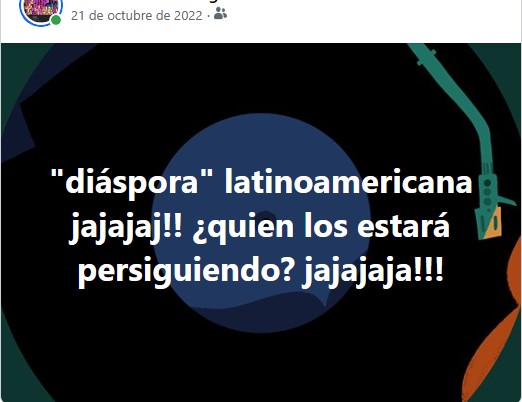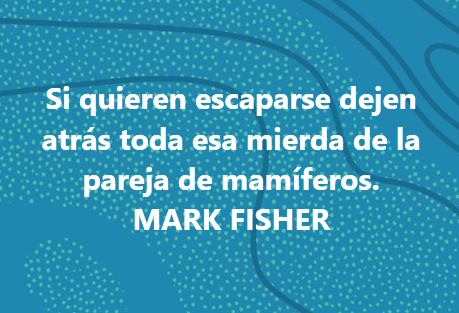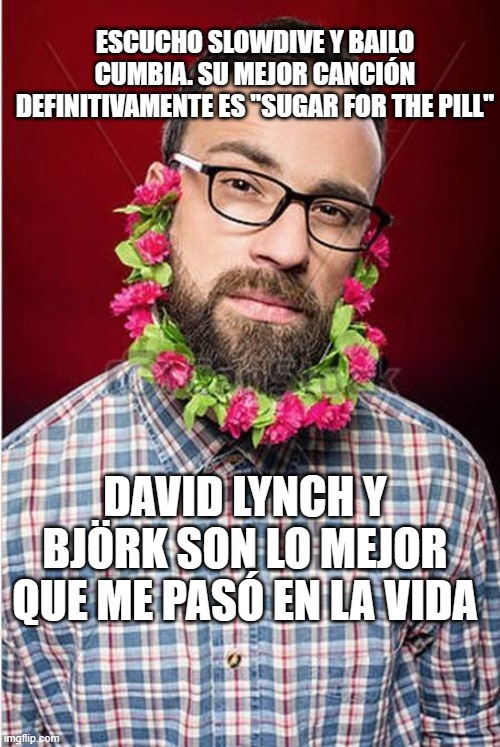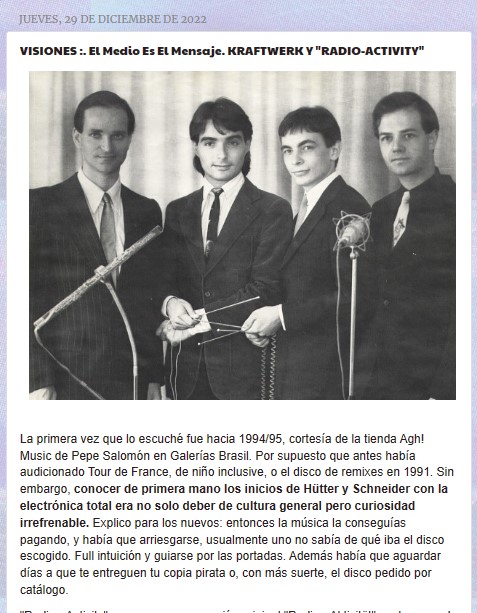Desde Glasgow, Escocia llega Michael Kasparis y su proyecto de electrónica indie Apostille. El 22 de setiembre editará "Prisoners of love and hate" (Night School, 2023), "un tratado de 9 canciones sobre la música pop, el trauma, el éxtasis y las mundanidades entre los extremos". Una delicia que mixtura el techno house, la new wave y hasta el pop mainstream. Escuchamos influencias que van desde Aphex Twin hasta Bruce Springteen pasando por el punk rockeril. En suma, nos gustó más que The Postal Service. No lo parece pero Kasparis cuenta ya con 42 años y dirige Night School donde ha difundido artistas del porte de Molly Nilsson, Liberez y The Space Lady. De esto y más nos habla en exclusiva.
Gracias por concedernos la entrevista Michael. Cuéntanos tu edad y a qué te dedicas.
¡Gracias por las preguntas divertidas! Tengo 42 años, lo cual me sorprende para ser honesto, y llevo el sello Night School y también trabajo en una tienda de discos en Glasgow llamada Monorail Music. como mucha gente, no me queda nada a fin de mes pero no quisiera hacer nada más.
¿Cómo empezó tu interés por la música alternativa, qué escuchabas en el colegio y cuando eras adolescente?
Como la mayoría de la gente de mi generación, ¿pienso que con Nirvana? Me encantaba la música cuando era niño: crecí en Chipre y toda la música se compraba en casetes piratas baratos: se importaban discos y eran muy caros, así que compraba cosas como Iron Maiden y Guns N' Roses en estos cassettes descoloridos y con sonido de mierda. Cuando me mudé a Escocia, hice un amigo en la escuela al que le gustaban más las cosas alternativas, quien me presentó tantas cosas. Eran finales de los 90, así que todo el rock alternativo estadounidense; Smashing Pumpkins, Alice In Chains, pero luego cosas como Mogwai y Arab Strap, grupos británicos como Placebo, Suede... Siempre me sentí atraído por las cosas que eran “oscuras” o extrañas de alguna manera. Sin embargo, nunca hice una gran distinción entre “alternativo” y pop. Siempre me encantó Madonna, pop de los 80, música de las listas de los 90, nunca pensé que todo estuviera separado. Hacia el final de mi adolescencia, me estaba metiendo en cosas más clandestinas, supongo. Metal extremo, free jazz, psicodélico de los 60, 90, música electrónica como Warp y AFX, cualquier cosa que me hiciera sentir algo.
¿Cómo es la escena en Glasgow, qué grupos has podido ver en concierto, qué otros proyectos nos recomendarías?
Cambia mucho, casi de mes a mes. Siento que la pandemia fue muy disruptiva, mucho de las bandas se separaron, hubo una ola de gente de la escena a la que llamaron por cosas y creo que banda/punk/rock como quieras llamarlo todavía está un poco por detrás de lo que era. Hay una escena electrónica fascinante y floreciente con muchos géneros y personalidades diferentes. Hay una artista llamada Helena Celle, que siempre es tan interesante que es difícil seguirle el ritmo. Free Love son la más grande banda de fiesta en el Reino Unido en mi opinión. Hay una estación de radio local aquí llamada Clyde Built Radio. Puedes escucharlo en línea y tiene una descripción general amplia y divertida de lo que sucede aquí. Hay un grupo también aquí se llama L, el líder es un mago entrenado y su música es como Dada Doom con palabras habladas, interludios de palabras, sketches cómicos, ruido extremo, realmente impredecible y genial.
Estás a punto de lanzar un nuevo álbum con tu proyecto solista, APOSTILLE. Lo escuchamos y nos gusta más que Postal Service incluso. Cuéntanos tus expectativas con este álbum, cómo fue su proceso de creación y el detrás de escena que lo rodea.
¡Ja, gracias! Intento no tener expectativas si puedo. Sólo conducen a la decepción, así que estoy tratando de concentrarme en hacer algo de lo que estoy orgulloso y ver qué sucede. Es muy diverso y por todos lados y si alguien conecta con eso, me hace muy feliz, porque no es fácil. Normalmente escribo todo y hago un demo en casa en el lado sur de Glasgow y llevo las demos a Lewis Cook (del grupo Free Love) que le da forma al álbum conmigo. Este álbum fue muy divertido de hacer, siempre lo es. Pedíamos el tiempo o había cosas que sugería que eran ridículas y Lewis me animaba a hacerlos. La música siempre ha sido pura emoción y alegría al hacerlo, nunca he tenido un proceso de grabación que se haya sentido particularmente difícil.
¿Por qué o a qué aludes con APOSTILLE?
Es una especie de broma interna. El verdadero segundo nombre de mi padre es Apostolos pero lo cambió cuando fue adoptado. Entonces, mi “nombre de sangre” es Michael Apostolos pero no quería cambiarlo por respeto a mi papá, pero siempre quise reconocer a mi abuelo a quien nunca conocí. Una Apostilla en realidad es un proceso legal muy aburrido de verificar documentos legales en un país diferente, pero luego me gustó la idea de utilizar un término que simbolice el control sistemático de las personas, sobre cómo navegar fronteras y burocracia. Para ser honesto, me sentí más relevante cuando comencé el proyecto. Quería algo que distinguiera la música de “mí” como persona, pero ahora no me importa jaja.
Cuéntanos sobre tu sello Night School: ¿cuándo empezó, cuántos lanzamientos tienes, compilaciones, qué bandas o álbumes destacarías, qué pasa con los comentarios de la prensa y los melómanos?
Bueno, ¡ya son casi 15 años! Siempre ha existido como fuera del mainstream y también fuera del underground también, ¿de una manera extraña? Como si algunos de los lanzamientos definitivamente encajaran en las expectativas de la gente que gusta de la música experimental o lo que sea, pero luego saco un disco pop que mucho de este tipo de personas no saben qué hacer con él. Comenzó en 2011, en Londres, cuando vivía allí. Tengo hasta 88 ediciones, lo cual es una locura. Sólo he hecho dos recopilaciones: una en ayuda de los japoneses por el terremoto en 2011 y uno para regalar gratis en un evento de todo el día que organicé en 2015. ¿Qué destaco? Es realmente difícil mirar hacia atrás. Los grandes avances del sello fueron Molly Nilsson, The Space Lady, tal vez Cucina Povera, pero realmente me encanta este disco que saqué por Liberez, o este extraño disco surrealista de folk inglés/minimalista de un grupo llamado Charcoal Owls.
Acabo de publicar un disco de un nuevo dúo llamado Marina Zispin con el que estoy obsesionado. Por puro genio pop, creo que los discos de Patience son increíbles, si te gusta el synth pop clásico. Hay mucho.
Prensa... ¿viene y va? Tampoco estoy tan ocupado como debería con el sello porque también tengo un trabajo y mi propia música y hasta una vida personal jaja.
El mundo está girando, por no decir retrocediendo, hacia la derecha y el fascismo avanza. Por favor cuéntanos, ¿cómo es el entorno social y político en tu país, Escocia? ¿Cómo afecta esto al desarrollo de la cultura y la música y tu evolución o desarrollo en particular?
Sí, totalmente. Escocia siempre se ha sentido muy privilegiada en cierto modo... Yo diría que hay un consenso e inclinación hacia la izquierda aquí, la socialdemocracia, pero eso es en el tipo de juventud y comunidades centradas en el arte. Hemos tenido un gobierno de izquierda (o de izquierda en el papel) desde los años 50 pero, por supuesto, no somos un país independiente, estamos gobernados por un parlamento que es más a menudo derecha que no. También es fácil para mí caer en el estereotipo anterior: mucha gente en nuestra escena piensa así, que Escocia es más de izquierdas, pero también tenemos un problema con la transfobia, los efectos del pensamiento neoliberal se sienten en los partidos tradicionales de “izquierda”. Casi lo diría que este entorno nos hace menos radicales que sociedades que tienen una tendencia más derechista, un régimen autoritario, pero luego en Glasgow durante el encierro hubo una protesta masiva en un forzado desalojo cuando algunos inmigrantes debían ser desalojados por la fuerza por la policía. Básicamente, todo nuestra calle salió y se puso frente a la camioneta de la policía, así que tal vez podamos ser radicales cuando queramos ser. Glasgow tiene esta dualidad de ser famosa por su música bastante “cursi” (Belle & Sebastian, Teenage Fanclub, etc.) pero además teniendo una reputación muy dura. También hay una fuerte afición a las discotecas y a cultura de las drogas aquí, aunque en mi opinión nada de eso es abiertamente político. Probablemente esto sería diferente si viviera, por ejemplo, en ¿Egipto?
"Prisoners of love and hate" está lleno de canciones de pista de baile y me temo que muchas hablan de pasatiempos y subidas y bajones de la primera juventud. ¿Cómo son los fines de semana de Michael Kasparis y las fiestas a las que suele asistir? ¿Qué drogas y brebajes son preferidos por la hermandad escocesa de vanguardia? ¿Qué puedes decirnos sobre la gentrificación cultural/musical palpable en todo el mundo?
Ja, sí. Gran parte del disco fue escrito justo antes o durante el encierro mientras tenía momentos comunitarios de alegría o éxtasis, en conciertos o fiestas O cuando extrañaba esas cosas, estancado en mi casa. Creo que en muchas de esas experiencias puede haber un lado negativo que es oscuro o melancolía y definitivamente trato de capturar eso en mi música. Estos días ya no salgo de fiesta como lo hacía hace 10, 15 años. Tal vez una o dos veces al año saldré y me quedaré fuera, ja. La verdad es que a medida que fui creciendo me interesé más en sentirme bien todo el tiempo de forma sostenible, en lugar de unas horas seguidas en un club, aunque creo que esas experiencias son realmente importantes y vitales, o lo fueron para mí. Entonces, estos días me gusta ir a conciertos, hacer largas caminatas o correr, y mis fiestas de dos días una o dos veces al año jajaja. ¿La hermandad escocesa de vanguardia? Bueno, si algún día los encuentro, les preguntaré por ti.
Podría seguir hablando de gentrificación para siempre. Todos lo sabemos, todos lo vemos y hasta cierto punto somos todos responsables. Creo que es inevitable si queremos difundir nuestra cultura y nuestros valores. La rectitud ética de hacerlo es otra cuestión, por supuesto. No creo que quiera difundir mis valores o lo que sea, pero luego te encuentras en esta situación en la que eres el controlador de cómo la información y la cultura se difunde, o eso crees. Recuerdo haber ido a Turquía quizás en 2009 y los lugareños habían comenzado a darse cuenta de que la escena psicodélica turca de los años 60 y 70 es súper coleccionable y comenzaron a vender esos discos por un poco de dinero, muchos buscadores de discos occidentales estaban enojados. Como si quisieran que esas personas permanecieran en la ignorancia sobre el valor económico de su cultura para poder conservar un poco de influencia o poder vender esos discos por más dinero. O cuando hay gente occidental (a falta de una palabra mejor) quejándose de la falta de pureza en alguna cultura u otra. Como gente quejándose del autotune en la música tradicional Rai, lo que sea. Como por un lado, quieres vivir en un mundo tecnológicamente aumentado y lleno de privilegios, y quieres consumir la cultura de las personas en regiones económicamente más pobres en un retiro, como todo el gusto musical de algunas personas gente se basa en la “otredad” de algo y en fetichizarlo. A la mierda eso. Tienes que abordar cualquier música o cultura en sus propios términos y mostrar algo de respeto. En términos culturales más amplios, es bastante delicado. ¿Estoy personalmente de acuerdo con cómo algunos sectores de la sociedad son tratados en algunos países? Por supuesto que no. Pero simplemente no voy a viajar a otra parte del mundo y decirle a la gente cómo vivir sus vidas. Eso es simplemente imperialismo disfrazado de falsa preocupación. No estoy seguro de tener un punto de coherencia aquí, tómalo todo como quieras.
Planes futuros.
Estaré de gira por el Reino Unido a finales de septiembre y octubre y luego por Estados Unidos en primavera, con Molly Nilson. Tengo una nueva banda de death metal que me entusiasma mucho y se supone que voy a empezar un grupo más industrial, pero eso ha estado en la fase de conversación durante al menos un año jajaja. Aparte de eso, seguiré haciendo exactamente lo que estoy haciendo hasta que ya no pueda hacerlo más. Creo.
Palabras finales.
Cuídense a sí mismos... y a los demás.
A CONVERSATION WITH MICHAEL KASPARIS AKA APOSTILLE :. There are people complaining about autotune but they want to live in a technologically augmented and privileged world. They base their taste in music on the "otherness" of something and fetishize it, fuck that.
APOSTILLE photo by Holly Allan
From Glasgow, Scotland comes Michael Kasparis and his indie electronic project Apostille. On September 22 he will release "Prisoners of love and hate" (Night School, 2023), "a 9-song treatise on pop music, trauma, ecstasy, and the mundanities between extremes." A delight that mixes techno house, new wave and even mainstream pop. We hear influences ranging from Aphex Twin to Bruce Springteen through punk rock. In short, we liked it better than The Postal Service. It doesn't seem like it, but Kasparis is already 42 years old and runs Night School where he has promoted artists such as Molly Nilsson, Liberez and The Space Lady. He talks to us exclusively about this and more.
Thanks for giving us the interview Michael. Tell us your age and what you do for a living.
Thanks for the fun questions! I’m 42, which I am surprised about to be honest, and I run the record label Night School and also work in a record store in Glasgow called Monorail Music. Like a lot of people, I have nothing left at the end of the month but wouldn’t want to do anything else.
How did your interest in alternative music begin, what did you listen to at school and as a teenager?
Like most people of my generation, I think with Nirvana? I loved music as a kid: I grew up in Cyprus and all music was bought on cheap pirate cassettes: records were imported and just too expensive, so I was buying stuff like Iron Maiden and Guns N’ Roses on these faded, crap-sounding cassettes. When I moved to Scotland, I made a friend in school who was into more alternative stuff who introduced me to so much. It was the late 90s so all the American alt rock; Smashing Pumpkins, Alice In Chains, but then stuff like Mogwai and Arab Strap, British groups like Placebo, Suede... I always gravitated towards things that were “dark” or queer in some way. I never made much of a distinction between “alternative” and pop, though. I always loved Madonna, 80s pop music, 90s chart music, I never really thought of it all as separate. Towards the end of my teens, I was getting into more underground stuff, I guess. Extreme metal, free jazz, 60s psychedelic, 90s electronic music like Warp and AFX, just anything that made me feel something.
What is the scene like in Glasgow, what groups have you been able to see in concert, what other projects would you recommend to us.
It changes so much, almost from month to month. I feel like the pandemic was so disruptive, a lot of bands broke up, there was a wave of scene people who got called out for stuff and I think band / punk / rock whatever you wanna call it is still a little behind what it was. There’s a thrilling and thriving electronic music scene with loads of different genres and personalities. There’s an artist called Helena Celle who is always so interesting it’s hard to keep up. Free Love are the biggest party band in the UK in my opinion. There’s a local radio station here called Clyde Built Radio you can listen to online which has a broad, fun overview of stuff going on here. There’s a group also here called L, the front person is a trained magician, and their music is like Dada doom with spoken word interludes, comedy sketches, extreme noise, just really unpredictable and so great.
You are about to release a new album with your solo project, APOSTILLE. We listen to it and we like it better than The Postal Service even. Tell us about your expectations with this album, how was its creation process and the behind the scenes around it.
Ha, thank you! I try not to have any expectations if I can. They only lead to disappointment, so I’m trying to focus on making something I’m proud of and seeing what happens. It’s very diverse and all over the place and if someone connects with it, it makes me really happy, because it’s not easy. I usually write everything and demo it at home in the Southside of Glasgow and I take the demos to Lewis Cook (of the group Free Love) who knocks the album into shape with me. This album was a lot of fun to make, it always is. We would mess about or there would be things I would suggest that were ridiculous and Lewis would encourage me to do them. Music has always been about pure excitement and joy while making it, I’ve never had a recording process that has felt particularly difficult.
Why or what do you allude to with APOSTILLE?
It’s a kind of in-joke. My father’s real second name is Apostolos but he changed it when he was adopted. So, my “blood name” is Michael Apostolos but I didn’t want to change it out of respect for my dad, but I always wanted to acknowledge my grandfather who I never met or knew. An Apostille is actually a very boring legal process of verifying legal documents in a different country but then I liked the idea of using a term that is symbolic of systematic control of people, about navigating borders and bureaucracy. It felt more relevant when I started the project to be honest with you. I wanted something that distinguished the music from “me” as a person, but now I don’t care haha.
Tell us about your Night School label: when did it start, how many releases do you have, compilations, which bands or albums would you highlight, what about feedback from the press and melomaniacs?
Well, it’s almost 15 years old now! It’s always existed kind of outside the mainstream and also outside the underground too, in a weird way? Like some of the releases definitely fit into people’s expectations of experimental music or whatever but then I’ll put out a pop record that a lot of those kind of people don’t know what to do with. It started in 2011, in London when I was living there. I’m up to 88 releases now, which is crazy. I’ve only done two compilations: one in aid of the Japanese Earthquake appeal in 2011 and one to give away for free at an all-dayer I put on in 2015. What would I highlight? It’s really hard to look backwards. The big breakthroughs of the label were Molly Nilsson, The Space Lady, maybe Cucina Povera, but then I really love this record I put out by Liberez, or this strange surreal English folk / minimalist record by a group called Charcoal Owls.
I’ve just released a record by a new duo called Marina Zispin which I’m obsessed with. For pure pop genius I think the Patience records are amazing, if you like classic synth pop. There’s A LOT.
Press...it comes and goes? I’m also not as busy as I should be with the label because I also have a job and my own music and even a personal life haha.
The world is turning, not to say regressing, to the right and fascism is on the advance. Please tell us, how is the social and political environment in your country Scotland? How does this affect the development of culture and music and your evolution or development in particular?
Yes, totally. Scotland has always felt very privileged in a way...I’d say there’s a very loose consensus and leaning towards the left here, social democracy, but that’s in the kind of youthful, art-focused communities. We’ve had a left-wing (or left-wing on paper) government since the 50s but of course we’re not an independent country, we’re governed by a parliament that is more often right wing than not. It’s also easy for me to fall into the stereotype above: a lot of people in our scene think like this, that Scotland is more left, but we also have a problem with transphobia, the effects of neo-liberal thinking being felt in traditional “leftwing” traditional parties. I would almost say that this environment makes us less radical than in societies which have a more right-wing, authoritarian regime but then in Glasgow during lockdown there was a mass protest at a forced eviction when some migrants were meant to be forcibly evicted by the police. Basically, our whole street came out and lay down in front of the police van, so maybe we can be radical when we want to be. Glasgow has this duality of being famous for quite “twee” music (Belle & Sebastian, Teenage Fanclub etc.) but then having a very hard reputation. There’s also a very strong clubbing and drug culture here, though to my ears none of it is overtly political. This would probably be different if we lived in, for example, Egypt?
"Prisoners of love and hate" is packed with dance floor songs and I'm afraid a lot of it talks about hobbies, ups and downs of early youth. What are Michael Kasparis's weekends and the parties he attends usually like? What drugs and concoctions are preferred by the avant scottish brotherhood? What can you tell us about the cultural/musical gentrification palpable worldwide?
Ha yeah. A lot of the record was written just before or during lockdown while I was having communal moments of joy or ecstasy, at gigs or parties OR when I was missing those things, stuck in my house. I think with a lot of those experiences there can be a flip side which is dark or melancholy and I definitely try to capture that in my music. These days I don’t party like I did 10, 15 years ago. Maybe like, once or twice a year I’ll go out and stay out, ha. The truth is as I got older I got more interested in feeling good all the time in a sustainable way, rather than for a few hours in a club, though I think those experiences are really important and vital, or they were for me. So, these days I like going to gigs, going on long hikes or runs, and my once or twice yearly two day parties hahaha. The Avant Scottish brotherhood? Well, if I ever meet them, I will ask them for you.
I could go on about gentrification forever. We all know it, we all see it and to some degree we are all responsible. I think it’s unavoidable if we want to spread our culture and our values. The ethical rectitude of doing that is another matter, of course. I don’t think I want to spread my values or whatever, but then you get into this situation where you’re the controller of how information and culture is spread, or you think you are. Like, I remember going to Turkey in maybe 2009 and the locals had started realising that their 60s and 70s Turkish psyche scene is super collectible and they started selling those records for a bit of money, a lot of Western record diggers were pissed off. Like, they wanted those people to remain in the dark about the economic value of their culture so they could hold on to a bit of clout or be able to sell those records on for more money. Or when you get Western (for want of a better word) people complaining about the lack of purity in some culture or another. Like people complaining about autotune on traditional Rai music, whatever. Like on the one hand you want to live in a technologically augmented world full of privilege and you want to consume the culture of people in more economically poorer regions at a remove, like some people’s whole music taste is based on “othering” something and fetishising it. Fuck that. I think you have to approach any music or culture on its own terms and show some respect. In broader cultural terms, it’s just quite delicate. Like, do I personally agree with how some sections of society are treated in some countries? Of course not. But I’m just not going to travel to another part of the world and tell people how to live their lives. That’s just imperialism dressed up in fake concern. I’m not sure I have a cohesive point here, take all of this as you will.
Future plans.
I’m touring the UK at the end of September and October and then USA in the spring, with Molly Nilsson. I have a new death metal band that I’m really excited about, and I’m meant to be starting a more industrial group, but that’s been in the talking about phase for at least a year hahaha. Other than that, I’ll keep doing exactly what I’m doing until I can’t do it anymore. I think.
Final words.
Take care of yourself... and each other.
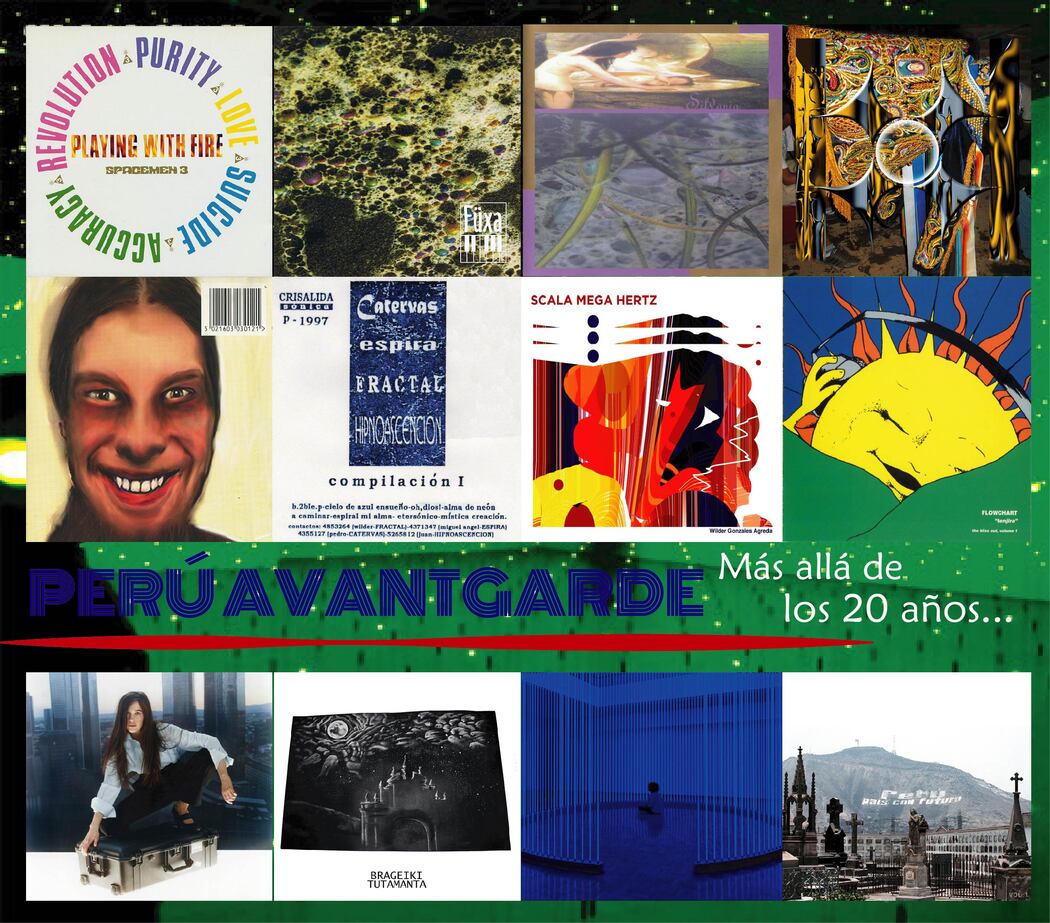
.png)

